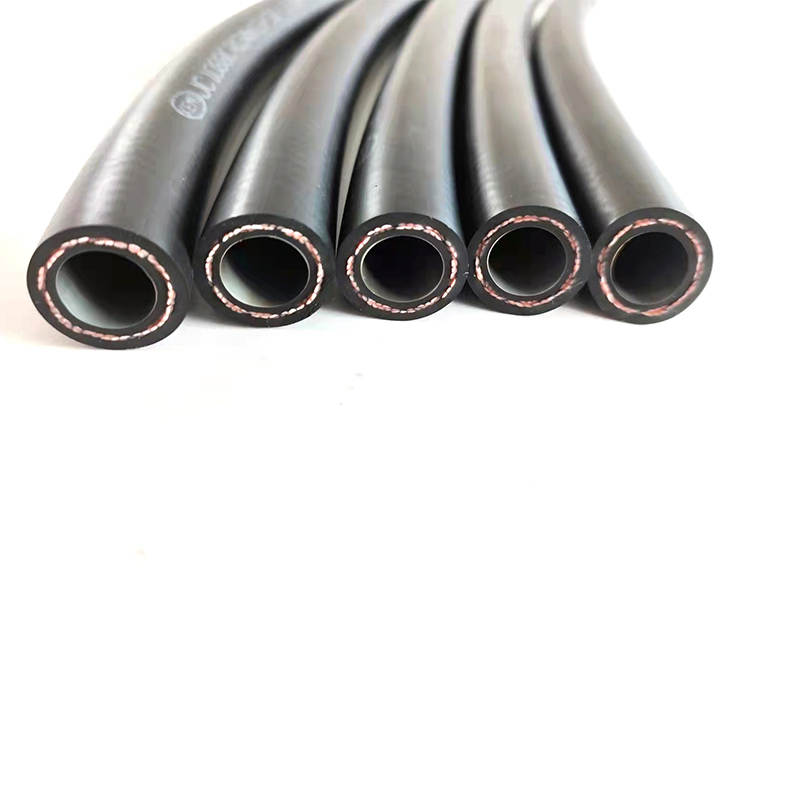trailer hydraulic brake hose
Sep . 02, 2024 12:14 Back to list
trailer hydraulic brake hose
Understanding Trailer Hydraulic Brake Hoses
When it comes to ensuring the safety and reliability of your trailer, one vital component that often goes overlooked is the hydraulic brake hose. This essential part plays a crucial role in the braking system, transporting brake fluid from the master cylinder to the brake calipers. In this article, we will delve into the significance, functionality, and maintenance of trailer hydraulic brake hoses.
The Importance of Hydraulic Brake Hoses
Hydraulic brake hoses are designed to withstand high pressures while ensuring the efficient transfer of hydraulic fluid in a trailer's braking system. This system is particularly prevalent in larger trailers, where the weight and size necessitate more robust braking performance. The hydraulic braking system works by using fluid to amplify the force applied to the brakes, delivering effective stopping power even under heavy loads. Therefore, a properly functioning hydraulic brake hose is indispensable for the overall safety of the vehicle and its cargo.
How Do Hydraulic Brake Hoses Work?
The hydraulic brake hose is a flexible pipe crafted from durable materials such as rubber or reinforced synthetic materials. It connects the brake master cylinder, which generates hydraulic pressure, to the brake calipers, where this pressure is applied to the brake pads against the rotors. When the driver presses down on the brake pedal, the master cylinder pushes fluid through the brake line, and the hydraulic brake hose conveys this fluid to the brake calipers. This action clamps the brake pads onto the rotors, slowing down or stopping the trailer.
trailer hydraulic brake hose

Signs of Wear and Tear
Like any component in a vehicle, hydraulic brake hoses can degrade over time due to factors like exposure to heat, moisture, UV rays, and road debris. It's essential for trailer owners to be aware of common signs of wear and tear - Visible Cracks or Fraying Inspect the hoses for cracks, fraying, or signs of deterioration. Any visible damage can lead to leaks and brake failure. - Brake Fluid Leaks Spotting brake fluid pooling near the wheels can indicate a leaky hose. This should be addressed immediately, as low fluid levels can jeopardize braking performance. - Spongy Brake Pedal A brake pedal that feels soft or spongy may suggest air in the brake line or fluid leaks, which often correlate with a failing brake hose.
Maintenance Recommendations
Regular maintenance of hydraulic brake hoses is crucial in extending their lifespan and ensuring optimal performance. Here are some guidelines 1. Routine Inspections Conduct thorough visual inspections of the hoses during routine maintenance checks. Look for any signs of damage or excessive wear. 2. Fluid Checks Regularly check the brake fluid levels, and replace the fluid according to the manufacturer's recommendations. 3. Replace When Necessary If you notice any of the aforementioned signs of wear, it's best to replace the hydraulic brake hose immediately. Delaying replacement can lead to catastrophic brake failure.
Conclusion
In summary, trailer hydraulic brake hoses are a critical component of the braking system, ensuring safety and reliability during travel. Understanding their function and maintaining them through regular inspections can save trailer owners from potential hazards and costly repairs. By paying attention to these crucial parts, you ensure not only your safety but also the integrity of the cargo being transported. Regular maintenance and timely replacements are the keys to a dependable trailer braking system.
